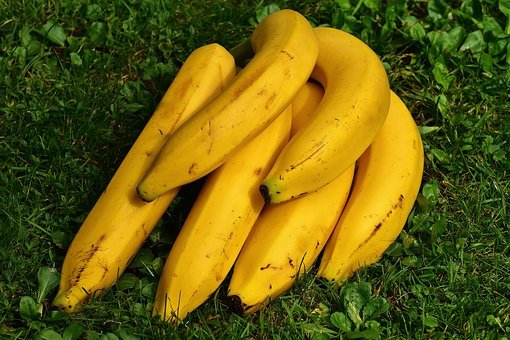Bananas are incredibly healthy, convenient, delicious, and one of the most inexpensive fresh fruits you can buy. This makes them an excellent choice for anyone interested in eating healthy.
Bananas contain many essential nutrients and may benefit weight loss, digestion, and heart health.
Rich in nutrients:
One banana provides about 112 calories and consists almost exclusively of water and carbs. They hold little protein and no fat. The carbs in green, unripe bananas are mostly in the form of starch and resistant starch — a type of indigestible fiber we’ll get to shortly. As the fruit ripens, its flavor becomes sweeter while its fiber content drops.
Improve blood sugar levels:
Bananas are rich in soluble fiber. During digestion, soluble fiber dissolves in liquid to form a gel. It’s also what gives bananas their sponge-like texture. Unripe bananas also contain resistant starch, which isn’t digested by your body. Together, these two types of fiber may moderate your blood sugar levels after meals. Plus, they may help regulate your appetite by slowing the emptying of your stomach.
Support digestive health:
Dietary fiber has been linked to many health benefits, including improved digestion. One medium-sized banana provides about 3 grams of fiber. Some test-tube studies even propose that pectin may help protect against colon cancer, although research in humans is still needed to confirm this benefit.
Weight loss:
No study has directly tested bananas’ effects on weight loss. However, this popular fruit does have several attributes that could make it a weight-loss-friendly food.
Support heart health:
Potassium is a mineral that’s vital for heart health, especially blood pressure management. Despite its importance, few people get enough potassium in their diet. What’s more, bananas contain 8% of the DV for magnesium, another mineral that’s important for heart health.
Full of antioxidants:
Fruits and vegetables are excellent sources of dietary antioxidants, and bananas are no exception. They contain several types of potent antioxidants, including flavonoids and amines.
Help you feel fuller:
The soluble fiber in bananas may help keep you full by adding bulk to your digestive system and slowing digestion. Additionally, bananas are relatively low in calories for their size.
Improve insulin sensitivity when unripe:
Insulin resistance is a significant risk factor for several chronic diseases, including type 2 diabetes. However, more research investigating how the resistant starch in bananas might affect insulin sensitivity is needed.
Improve kidney health:
Potassium is vital for healthy kidney function and blood pressure regulation. As great dietary sources of potassium, bananas could be especially beneficial when it comes to keeping your kidneys healthy.
Support exercise recovery:
Bananas are sometimes referred to as the perfect food for athletes. This is largely due to their content of easily digested carbs, as well as the minerals potassium and magnesium, both of which act as electrolytes. Nevertheless, bananas provide excellent nutrition before, during, and after exercise.






0 Comments